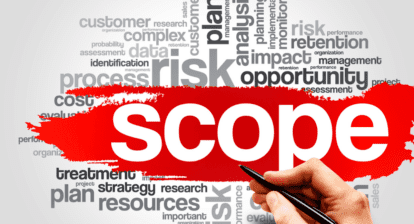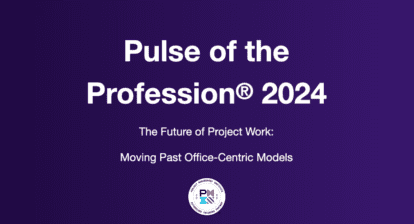The US-based Project Management Institute (PMI), which is unquestionably the largest professional organization representing project management practitioners, refers to project management as a profession 20-plus times in its code of ethics.
The oldest and second largest professional organization in terms of membership, the EU-based International Project Management Association (IPMA), while less strident, also refers to project management as a profession.
And the UK’s Association for Project Management (APM), in 2008, applied to the UK’s Privy Council for “Royal Chartered” status, giving project management legal status as a “profession.” Yet to date the Privy Council has failed to award APM with Royal Chartered status.
So what is the truth? Is project management truly a profession, the same as engineering or law or medicine, or teaching? Or is it something else? Are the professional organizations — which clearly have a vested interest in making project management a profession — biased in their views?
As a life-long construction project manager, with an undergraduate degree in civil engineering majoring in construction project management, claims by PMI, IPMA, and APM bothered me. I always considered my profession to be civil engineering; construction project management was the approach, methodology, or system I used to deliver my construction projects.
It was this tension between what I believed in as a professional practitioner and what the professional organizations that purported to represent my chosen life’s work were claiming that made me want to explore the topic in greater detail. As a result, I selected the topic for my PhD research, “Is project management a profession? And if not, what is it?”
Why So Much Confusion?
In conducting my research, I soon discovered a semantic trap that the leaders of these professional organizations, intentionally or not, used as the basis for making their claims. The anecdote below illustrates the false reasoning behind their claims.
Tiger Woods is unquestionably a talented golfer. One would be very hard-put to dispute the obvious, which that he is very competent at what he does — perhaps one of the best ever. Therefore he meets the first test of being a professional (n.) skill and competence. In fact, he is sufficiently competent that he makes a very handsome living performing for pay what most of us consider a hobby. Hence, applying the second criterion, he meets the “earnings test” to be considered a professional (n.). He is not an amateur.
Having met both tests (highly competent and earning a living at what most do for a hobby) entitles him to be termed a professional (adj.) golfer. However, just because Tiger Woods meets the criteria to be called both a professional (n) and a professional (adj.) golfer, golf itself does not qualify as a profession, although Woods might call it his profession (his paid job).
It’s no wonder that many in the community of practice of project management confuse what it means to belong to a profession. There’s the tendency to make the connection that if a person is, in fact, professional (extremely competent) in the way he or she works and is able to make a living doing something, then what he or she does must, by association, be considered a profession. This is false logic and a semantic trap easily fallen into, especially when professional organizations continue to make these claims despite credible research to the contrary.
What Did the Research Show?
Looking at all existing professions from the legal, socio-economic, and semantic perspectives, my research identified some 22 intrinsic and extrinsic attributes. Based on a survey of over 400 professional practitioners from around the world, which quantitatively measured and evaluated project management against those 22 attributes, the following results were clear
- Project management isn’t a profession. It’s a process. (I cover this on page 205 of my thesis.)
- Measured on a continuum, between bus drivers and medical doctors, project management is ranked as being more of a profession than being an electrician, but as less of a profession than being an MBA and certainly less than being a medical doctor.
- In terms of what we do being perceived as a profession by others, project management is about halfway between being an electrician and being a medical doctor. (I cover this on page 218.)
- Project management scored less than 34 out o f a possible 100 points when assessed against those 22 attributes, reaffirming the conclusion reached by other research on the same topic (specifically, that done by Zwerman and Thomas et al, funded in part by PMI, and published in 2004, which concluded that “project management is not now a profession and it is unlikely in the foreseeable future to become one.” (covered on page 319).
What’s Preventing Project Management from Becoming a Profession?
In order to build a profession, you must be able to “define and control” the body of knowledge. That body of knowledge can’t be “generic.” It must be “unique, esoteric, secret, complicated or abstruse.” (Abbott, Friedson et al) An example of this is the use of Latin or Greek by the medical and legal professions or the arcane terms used by commercial airline pilots. The body of knowledge project management is based upon is very much the same as general management, with the only meaningful “difference” being that projects have a defined end. Otherwise, the tools, techniques, and methodologies aren’t significantly different from those used by general management.
Also, project and program management is a process, which is embedded in just about everything we do. If we use PMI’s somewhat over-simplified definition of a “project” as being “a temporary undertaking to produce a unique product, service, or result” and we can begin to appreciate how pervasive, ubiquitous and broad the context specific applications are for the processes associated with “project management”:
- For an accountant, the project might be doing a client’s taxes. All of the accounting services provided to a client would be the program.
- For a doctor a project might be a patient’s specific procedure or intervention; that person’s treatment over time could be considered a program.
- For a lawyer, each case becomes a project. Like the accountant and doctor, the entirety of the client’s legal activities over time becomes a program.
- For a plumber, each “project” could be a specific work order in a particular building. The program might consist of the multiple jobs the plumber performs within the same construction project.
- For a mom or dad, each “project” could be getting a child through a particular developmental stage: toilet training, tying shoes, helping prepare a first science project. The collective results of all these “projects” become a program.
Which means that one way or another, we’re all “project managers.” While many of us are both extremely good at it, and are able to make a living doing it, that alone is not sufficient to justify any claims that project management is or should be a profession.
But more importantly, despite some generic commonality at a high level of detail, the processes used for each of these context-specific applications or incarnations are quite different. This means that the only meaningful approach to project management must be context- or application-specific — that the project management processes used by a cardiac surgeon performing open heart surgery are quite different than a plumber installing a new sink. This highlights the absurdity of trying to certify or validate project management at the generic level, as PMI and APM are doing, or worse yet, the licensing of generic project managers as South Africa appears to be doing.
How Do We Raise Our Professional Image?
In order to raise our professional images as dedicated project managers, there are a few activities we need to undertake.
First, we need to stop looking at “project , management” as a job title and understand it for what it is — a process — and accept that the “processes of project management” (initiating, planning, executing, controlling, closing) are embedded in just about everything we do, including all existing trades and professions (and even permeating our personal lives).
Second, we need to accept the fact that project management processes are context- or application-specific, meaning generic certifications such as the Project Management Professional (PMP)® or PRINCE2 are largely meaningless unless adapted for a specific application.
Third, we need to accept the fact that context- or application-specific processes are already being “certified” in most sectors as part of licensing or accreditation processes (for example, engineers earning their PE license, electricians or plumbers getting their licenses and becoming master tradespeople, or commercial pilots obtaining their licenses).
Fourth, we need to stop the professional organizations we belong to from claiming that project management is a profession. It’s a lie and a form of false and misleading information, which is or should be an ethical violation. By “over-promising” for their various credentials, these organizations, no matter how well intentioned, are actually damaging the credibility of those of who are professionals (both noun and adjective).
Fifth and finally, if we want to raise our professional image as practitioners of project management, we can’t rely solely on exam-based certifications or government mandated licenses. We need to follow the examples set by chiropractors or Chinese herbal/acupuncture practitioners in their efforts to obtain the recognition and respect of the traditional medical community. How did they accomplish this By consistently producing favorable results and outcomes to the consuming public while weeding out the incompetents, charlatans, and fraudulent practitioners in their midst.
For project managers, this translates into earning the respect and trust of those who use our professional services by consistently delivering projects on time, within budget, in substantial conformance to the technical specifications while also fulfilling the objectives for which the project was undertaken in the first place. We can do this by following the examples set by the trades and existing professions- by relying on competency-based credentialing, including some sort of formal apprenticeship/internship/residency followed by a peer review. (As done by IPMA and AIPM)
Sources:
Bill L.Zwerman and Janice L. Thomas, et al. (2004). Professionalization of project management: Exploring the past to map the future. Project Management Institute.
Andrew Abbott (1988). The system of profession: An essay on the division of expert labor. University of Chicago.







James Bawtree
Paul, you have an interesting point of view. I think Tiger Woods is a professional golf player and if there were as many golf player as there are project managers then it should also be a recognised profession!
Reading the article, just because many people use the principles of project management in their day to day life, it can’t be a profession, I respond to; just because I understand how electricity works (3 years engineering degree) it does not make me a professional electrician, I certainly would not try to sell myself as able to rewire a house, yet this is what we in the project management profession see time and time again; people running projects who have no clue as to how to do it and as a result we continue to see the huge level of failures.
We all do many things that professionals can do better, but often do not seek their help due to cost, time or other reasons. I often diagnosing a medial issue such as best way to treat a mosquito bite or a graze from a sports match for my kids, I am a qualified senior first aider but this does not make me a professional. So like the profession of health care project management has a wide use and comes to its greatest value when people are trying to solve uncommon problems or issues.
The Institute of Architects had a similar battle, there were many designers that called themselves architects until the institute differentiated licensed architects to the rest of the world. This is the same for lawyers, builders, doctors and many other professionals.
My personal view is we need to do is to have licensed Project Managers assessed against the various global standards. This would therefore mean everyone else is not licensed and ultimately corporations will not be able to use un-licensed project managers as their Board will not sign off and their insurance companies will not provide PI insurance…
I look forward to hearing more from you, as I agree the profession of project management has many issues and I believe it is my role as a professional to improve the world I work in.
Dr Paul D Giammalvo
Sorry Priyanka but you are conflating two very different things here. The PMP is nothing more than an EXAM based CERTIFICATION, which, when benchmarked against the US Professional Engineer (PE) license and Malcolmn Gladwell’s “10,000 hour” rule” is at BEST nothing more than an entry level credential. The only legitimate PROFESSIONAL level credentials PMI offers is their PgMP and PfMP http://pmworldjournal.net/wp-content/uploads/2015/01/pmwj30-Jan2015-Giammalvo-Certification-Benchmarking-2015-update-featured-paper.pdf
Explained more simply, the only thing the PMP validates is the ability to pass a multiple choice exam and nothing more.
As for whether project management is or is not a profession, you need to go here and you can see that there are some 22 attributes which need to be met before any occupation qualifies as a “profession” and project management scores only 33% out of a possible score of 100%.
Bottom line- IMPO, the PMP along with the PRINCE2 and ITIL credentials are perhaps three of the biggest SCAMS currently being perpetrated on the consuming public and those who aspire to be professional level practitioners. The only credentials worthy of an aspiring professional are those which validate COMPETENCY and not just the ability to pass multiple choice exams.
BR,
Dr. PDG, Muscat, Oman